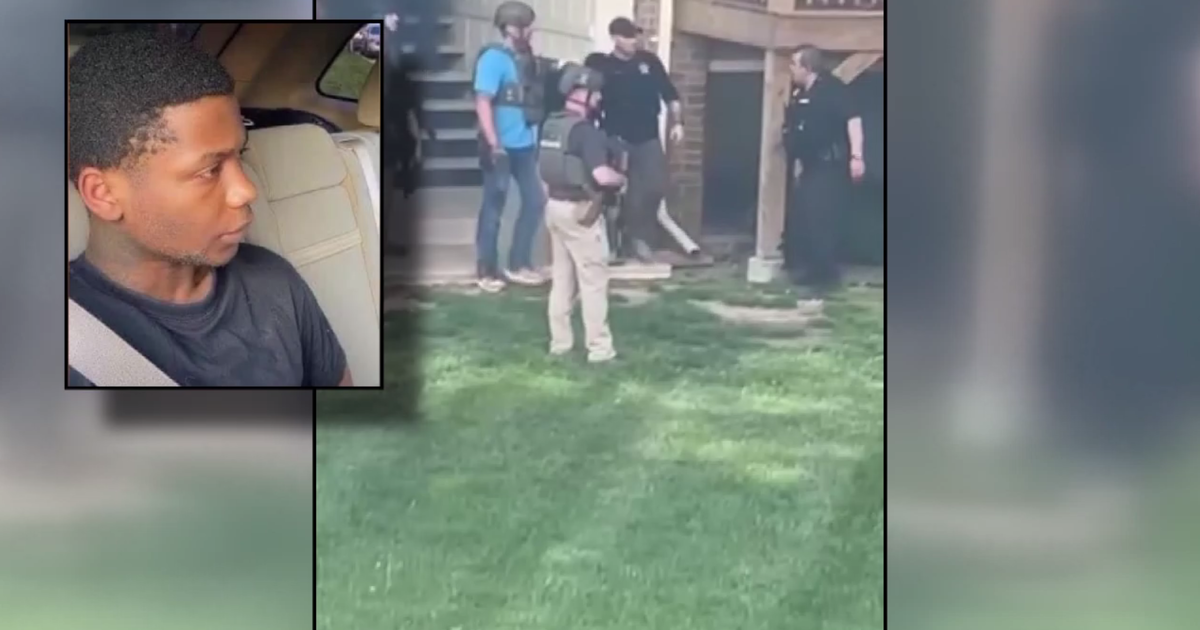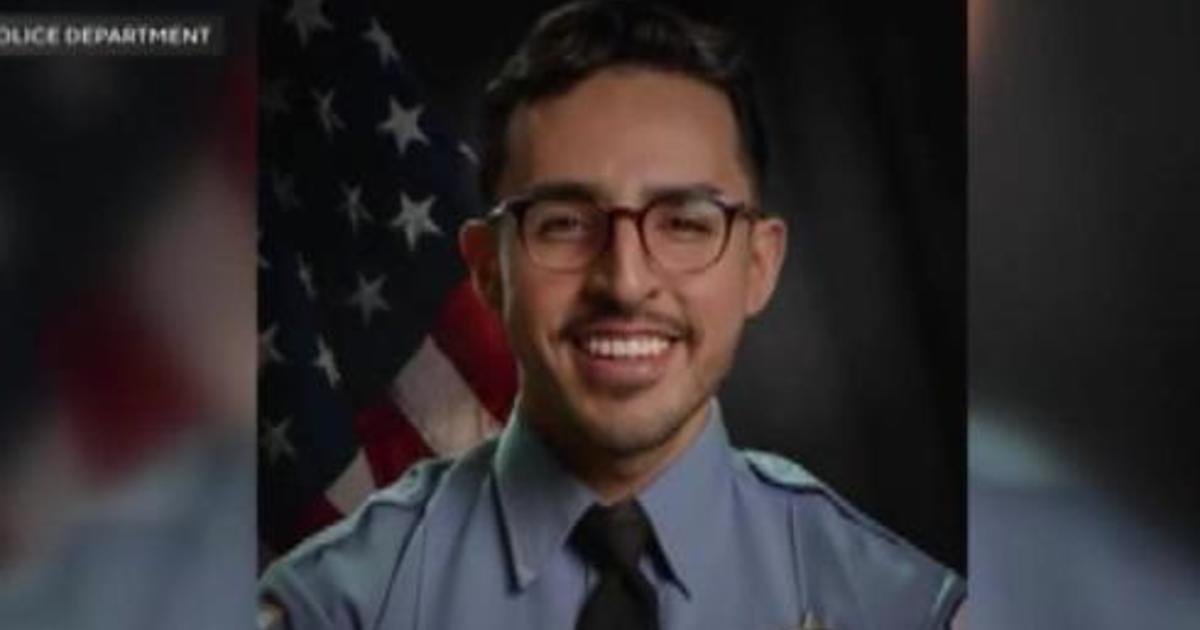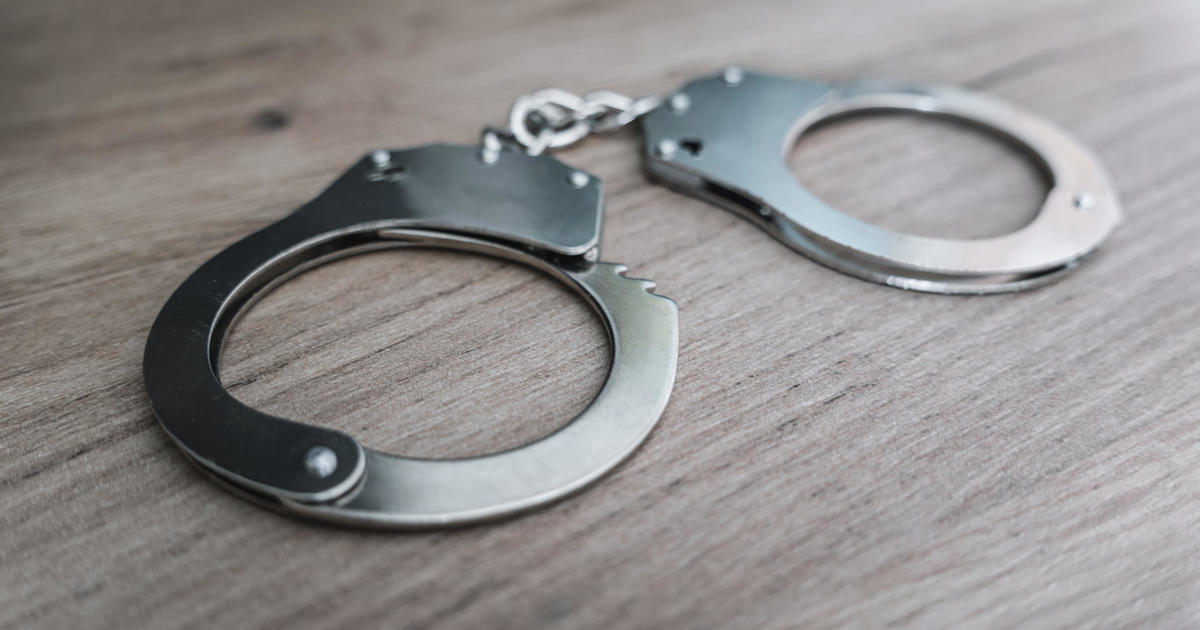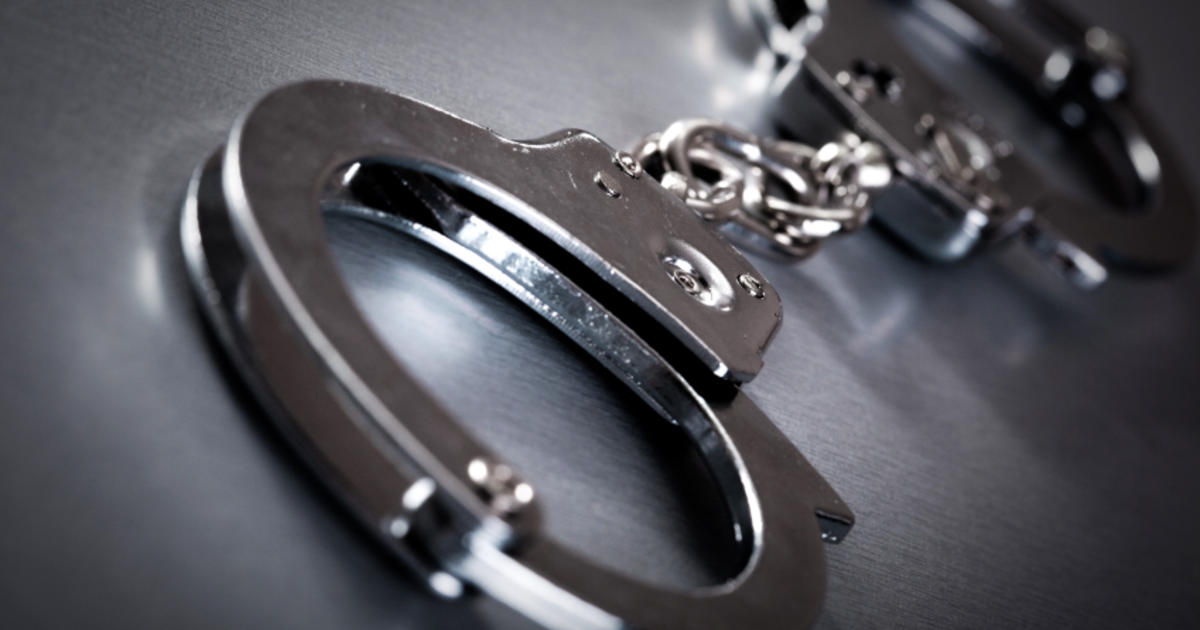There Could Be More Video Connected To Eric Lurry's Death That Joliet Police Haven't Released To The Public
JOLIET, Ill. (CBS) — The only video the public has seen surrounding the death of Eric Lurry has a timestamp of 4 p.m. on Jan. 28.
At that time, the camera in the back of a Joliet Police squad car captured some of the final moments of the 37-year-old man's life. The video, obtained by CBS 2 Investigators, begins with Lurry in the backseat handcuffed during a drug-related arrest . At one point, an officer is seen pinching Lurry's nose shut for a minute and 38 seconds, while another inserts a baton in his mouth. The clip is seven minutes long.
Despite showing that video to select news outlets last week -- five months after the incident -- the police department's own statements from the day Lurry died indicated there should be more video.
An official news release from Jan. 28 said officers arrived to the police station with Lurry in the backseat at 4:17 p.m. If accurate, and since the seven-minute video begins at 4 p.m., this could mean there are an additional 10 minutes of video the public hasn't seen.
After CBS 2 received a tip and confirmed the video existed, we reported on our findings June 30. Through repeated phone calls to Joliet Police Chief Alan Roechner and a Freedom of Information Act (FOIA) request, our investigative team asked police for the video. While we did not receive a response, Roechner released the video to other members of the media last Wednesday.
CBS 2 ultimately obtained a copy of that video independently.
After our repeated requests for interviews with Roechner, including multiple FOIA requests for documents about Lurry's death, the police chief instead turned to social media.
On Tuesday, he posted a statement on the department's Facebook page and acknowledged police turned over more video to the outside agency investigating Lurry's death.
But five months later, police still have not released all of the videos in their possession to the public. That's despite calls for transparency from city officials, including Mayor Bob O'Dekirk. In an interview, O'Dekirk said CBS 2's reporting on Lurry's death exposed new evidence that was never turned over to him or city lawyers.
"Clearly, there was some improper behavior on that video, any way you slice it," O'Dekirk said. "They were things that police officers are not supposed to do."
O'Dekirk sharply criticized Roechner during a city council meeting Tuesday night. He questioned why he and members of council or the city's lawyer were never informed about the squad car video until a whistleblower called attention to it recently.
"The fact that this never got to council, this never got the legal department -- it's unheard of that no one in the legal department would've been showed this video," said O'Dekirk said. "We've been kept in the dark for the entire time, including tonight. Learning things for the first time tonight."
CBS 2 obtained a second video clip, nearly six minutes long, showing a different angle aimed outside the windshield of what appears to be the same squad car. Officers can be seen walking in and out of the frame, including Sgt. Doug May, who slapped Lurry, called him a "bitch" then pinched his nose shut in the first clip.
May has been placed on administrative duty pending an internal investigation -- one that O'Dekirk said neither he or council knew about until Tuesday.
"You told council the week prior that there was no other videos," he said, "and then Channel 2 News shows up with them."
Before an angry crowd Tuesday night, Mayor O'Dekirk told City Manager Steve Jones – who has the power to fire and hire the police chief – that both of them should be investigated for the handling of evidence. Jones resigned shortly after the meeting.
Now the mayor and city council want to know if there's video from any of the external cameras perched above the police parking lot where Lurry's last moments occurred. He had no pulse when paramedics arrived.
Late Wednesday, a police spokesperson responded via email to some of CBS 2's questions about the video. Police now say three cameras captured different events related to the incident. Police also claimed the mayor and city council were already shown the full videos. But in a phone interview on Wednesday night, O'Dekirk said that wasn't the case.
Police also said in the email, "Once the videos are released, it will be released in full to the public." The spokesperson did not clarify what that means or give a timeframe for when police plan to release more video.
This is not the first time there have been questions about police transparency surrounding Lurry's death. In an interview with CBS 2, Lurry's widow, Nicole, said she was denied access to all police reports.
"I've tried to get answers from Joliet Police Department, and they won't give me any answers to what happened," Nicole Lurry said, adding she didn't know video from a police squad car existed until CBS 2 Investigator Dave Savini told her he learned there was one."
"They have something to hide," she added. "If there was nothing to hide, then why not show the video?"
Roechner denied these claims in his Facebook statement and said the family was informed in May that they could view the records.
CBS 2 also exclusively interviewed Javier Esqueda, the police sergeant who blew the whistle about the video. He was stripped of his police powers days after the interview aired.
"There obviously is a lot wrong with that video," Esqueda said, "and if anybody doesn't feel any pain by watching that, there's something wrong with them."
Roechner said Esqueda's "unauthorized access to video evidence that was involved in a criminal investigation" is what ultimately led to him being placed on administrative duty.
After Lurry died, police said officers believed there was a bag of drugs in his mouth. But Esqueda said even if that was the case, he doesn't believe the officers should've taken actions that could have cut off Lurry's air supply.
"That's been written in the law for a few years," Esqueda said. "You can't do that anymore to try to get them to cough up any kind of drugs in their system.
"I can't think of anywhere where I was taught CPR or in the academy where you slap a man, call him a bad name, cut off his airway, go for his throat," Esqueda added.
The Will County Coroner's Office ruled Lurry's death was due to heroin, fentanyl and cocaine intoxication. The autopsy report obtained by CBS 2 does not mention whether squad car video was reviewed before the coroner's office issued its ruling in March.
It wasn't until July 2 the coroner's office confirmed in a Facebook post that the video was viewed "prior to issuing the final cause and manner of death." Coroner Patrick O'Neil has not returned CBS 2's calls with questions about this.
In response to CBS 2's reporting, state senators also condemned the police department's handling of the investigation into Lurry's death.
"Why is it that the officer who spoke out on Eric Lurry's death was reprimanded but the officers responsible for Lurry's deaths were not?" Sen. Patricia Van Pelt (D-Chicago) said in a statement.
"We will never be able to fix things in this country and prevent deaths like George Floyd's, Eric Lurry's, and too many other Black people's, if the officers who speak out against racism and brutality are punished for it," Van Pelt continued.
Senate Majority Leader Kimberly Lightford (D-Maywood) said Joliet Police's reprimand of Esqueda "sends the message that police departments are not open to reform, and any officer that goes against the code of silence will be reprimanded."
"There is no room for policing that is not focused on the healing and wellbeing of our communities," Lightford said. "We should be encouraging officers to stand up the way Sergeant Esqueda did because no one should have to compromise their morals to keep their job, especially not a job meant to protect the public."



